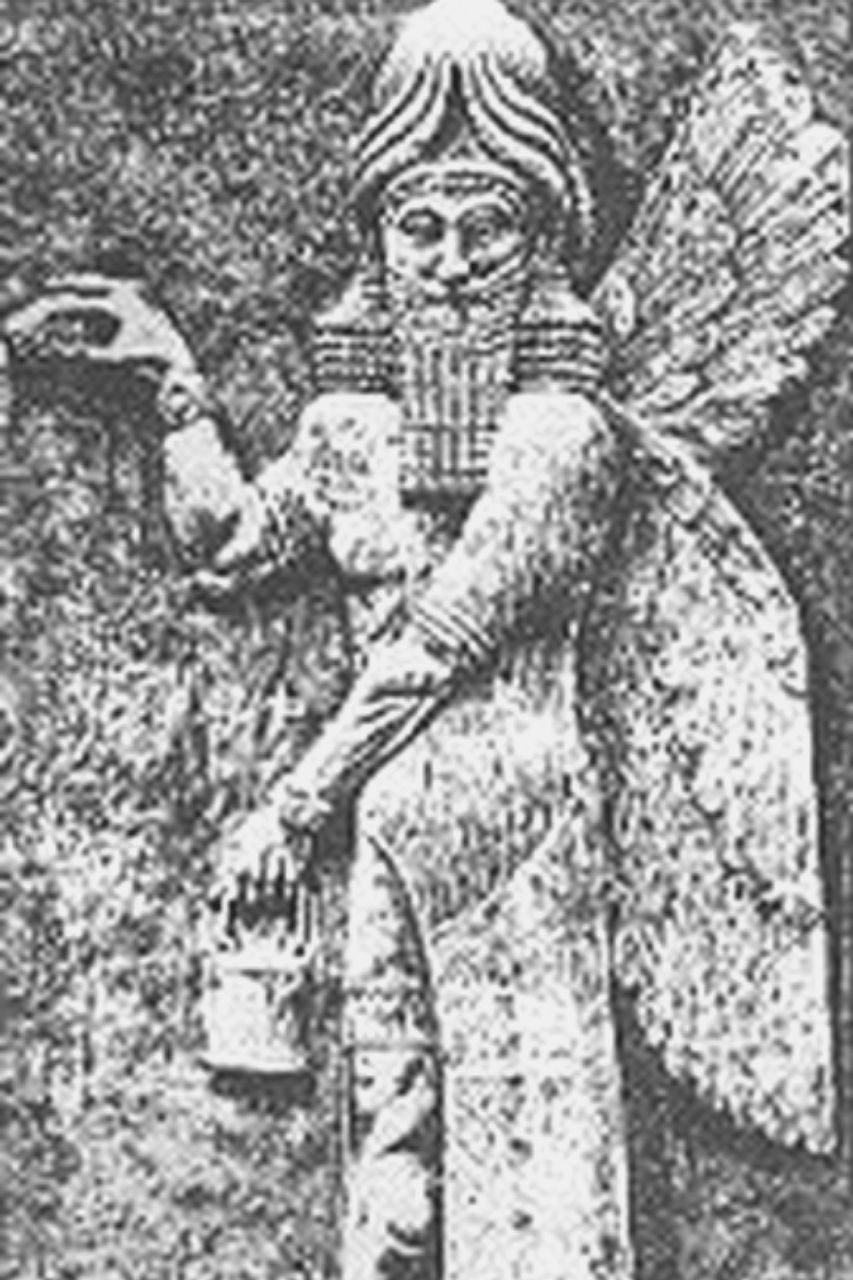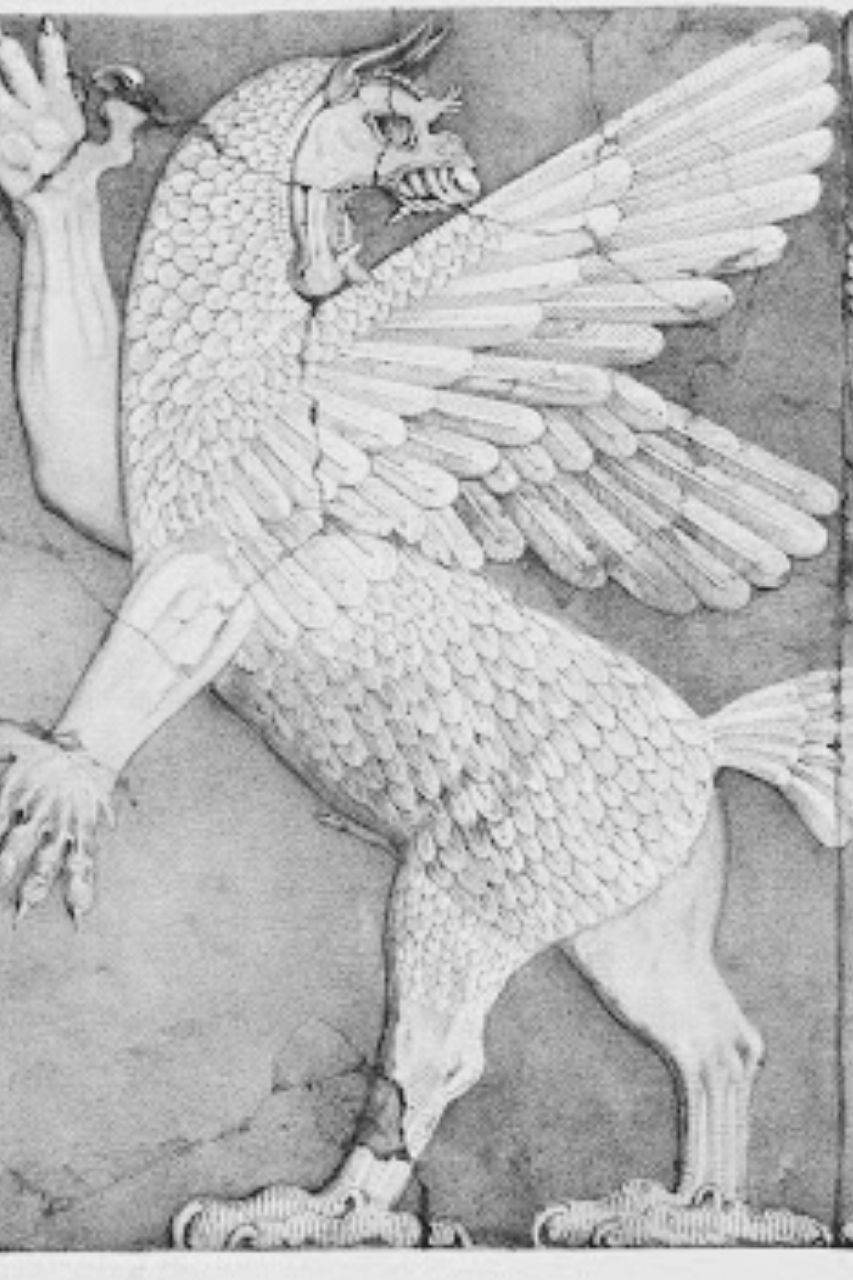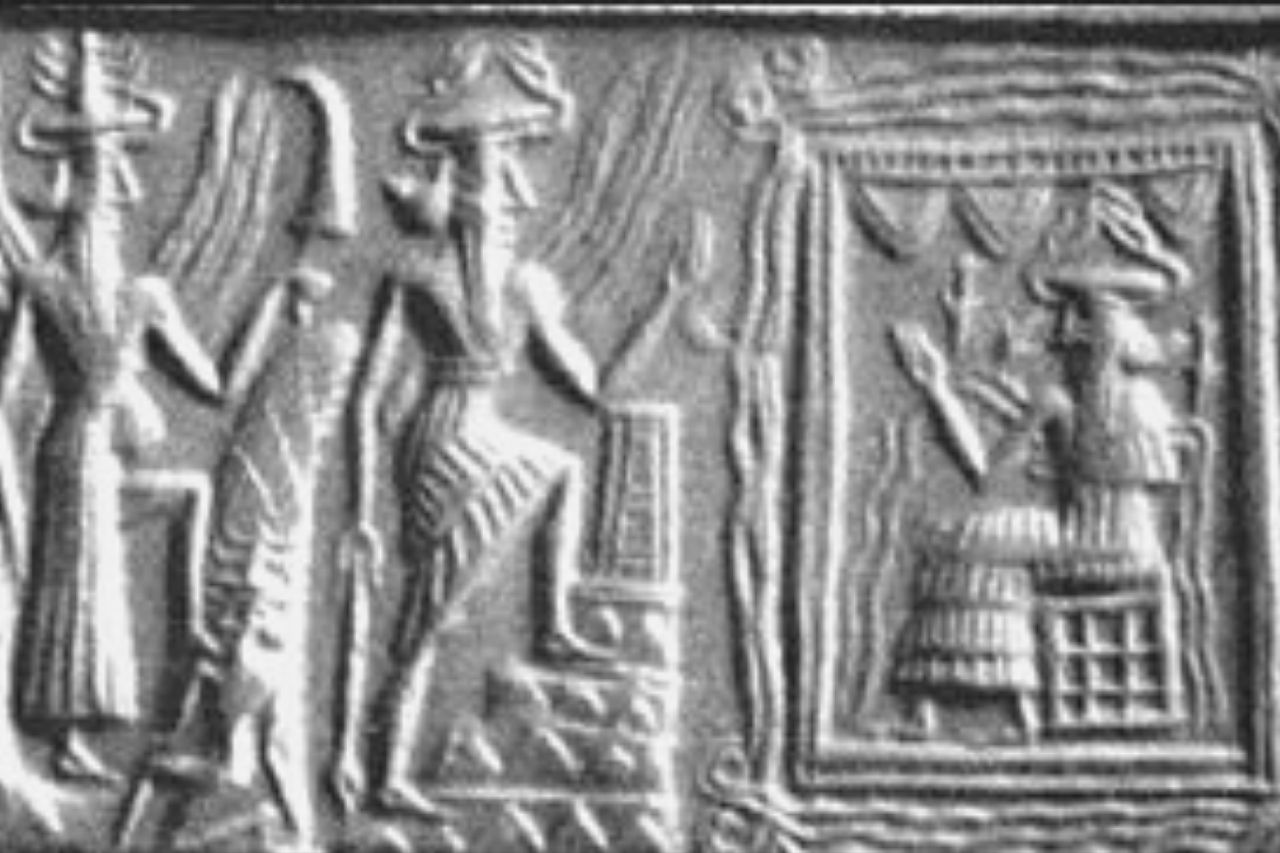Abzu God: The Mysterious Ancient Deity That Resided Beneath the Earth
Abzu god was an ancient Mesopotamian water deity worshiped in Sumer, Babylonia, and Assyria. Abzu — also known as Apsu and Absu — initially represented a vast underground freshwater ocean that, according to Mesopotamian belief, existed beneath the underworld. He appears as a deity only later and is mentioned in only one source, the ancient Babylonian creation myth, Enuma Elish.
Join us as we help shed some light on one of ancient Mesopotamia’s most important and most mysterious deities.
How the Discovery of Enuma Elish, the Babylonian Creation Myth, Changed History
Before the discovery of the Royal Library of Ashurbanipal by English archeologists Austen Henry Layard in 1849, most of our knowledge about ancient Mesopotamia came from classical sources. These were often unreliable and gave us an incomplete picture of Mesopotamian society, culture, and religion.
Ashurbanipal’s Library: A Treasure Trove of Ancient Knowledge
The discovery of Ashurbanipal’s library near the modern city of Mosul, Iraq, was one of the most important in the history of archeology. It enabled historians, scholars, and linguists to study 30,000 clay tablets inscribed in cuneiform script used in ancient Sumer, Akkad, Babylon, and Assyria.
The texts contained in the tablets contained literary compositions and legal documents from the Assyrian and Babylonian eras. The clay tablets containing the text of the Babylonian creation myth were recovered in fragmentary form and subsequently taken to England to study.
Who Is Abzu?
Abzu is mentioned in the first eight lines of Enuma Elish, as one of the two primordial deities that existed before creation itself. It is said that no gods existed but two primeval entities, Tiamat and Abzu. They are described as being the source of all existence:
“When on high the heaven had not been named,
Firm ground below had not been called by name,
Naught but primordial Apsu, their begetter,
(And) Mummu–Tiamat, she who bore them all,
Their waters commingling as a single body;
No reed hut had been matted, no marshland had appeared,
When no gods whatever had been brought into being,
Uncalled by name, their destinies undetermined—
Then it was that the gods were formed within them.”
Abzu and Tiamat Mingled To Create the Gods
As already stated, Abzu was the vast freshwater ocean beneath the earth, whereas Tiamat represented the salt sea that, according to Mesopotamian belief, surrounded the earth. Abzu and Tiamat mingled and, from their mixture, the first gods came into existence.
First of these were Lahmu and Lahamu, followed by Anshar and Kishar. Anshar begot the god Anu who begot Ea (also known as Enki). Soon, however, discord arose among the newly-created gods. Disgusted, Abzu proposed to destroy them, but Tiamat disagreed. In the ensuing conflict, Abzu was slain by his son, Enki, who used his body to build his abode.
As Revenge for the Murder of Her Beloved, Tiamat Unleashed Monsters Against the Other Gods
Saddened and angered by the murder of her husband, Tiamat created an army of monsters and unleashed them against the gods. Among them were dragons filled with “venom instead of blood.”
The Abzu dragon and other creatures swelled Tiamat’s armies. Worried about the outcome of the coming battle, Enki sought the advice of Anshar, his grandfather, who thought the gods would be too weak to oppose Tiamat.
Marduk: The Champion of the Gods
Marduk was the son of Enki and occupies an important place in Abzu mythology. It was said that “within the heart of Abzu” Enki and his consort, Damkina, created Marduk. Soon, they realized the splendor of their child exceeded their own and that of the other gods.
Anshar thus proposed that Marduk be chosen as their champion against Tiamat. Confident in his victory, Marduk demanded to be made the supreme god in return for vanquishing Tiamat.
The Battle Between the Gods and the Defeat of Tiamat
Having received elaborate weapons of war, Marduk set out to defeat Tiamat. He used the four winds and mighty storms to stir her and challenge her to single combat. Again, he used winds to trap her then fired his arrow which pierced her heart — killing her. From Tiamat’s battered remains, Marduk made the sky and the earth. He created the night and day, celestial bodies, and constellations.
The Final Act: The Creation of Man
Tablet Five describes how Marduk created the first humans. Initially, he intended to use his own blood to create man, but Enki suggested they use the blood of Kingu, Tiamat’s fallen companion, instead.
Men were said to have been created to serve the gods and honor them through ritualistic worship. The narrative of the creation myth completes with the creation of man and the enthronement of Marduk in his new city: Babylon.
Babylon: The City of Marduk
In Babylonian mythology, Marduk is the King of the Gods, the defender of humankind, and the god of healing, justice, and magic. His cultic center was in Babylon, where gods Enki (Ea), and Enlil were also worshipped. Marduk was the patron deity of Babylon, as well as the state god of the Babylonian Empire.
In later times, he came to be known as Bel, or simply “Lord.” His place in Mesopotamian mythology as the King of the Gods associated with the sky and thunderstorms resembles that of Zeus and Jupiter in Greek and Roman mythology.
How the Mesopotamian Gods Were Worshipped
It has been estimated that the Mesopotamians worshipped close to a thousand deities. Many deities had multiple names, which differed from region to region, Likewise, Mesopotamian culture was not uniform. Customs and religious practices varied, as did the mythology.
How Was Abzu Worshipped?
No Abzu temple has yet been uncovered. It does not seem that Abzu was worshipped as a deity by the ancient Mesopotamians. Abzu came to be regarded as the source of all wells, springs, rivers, and lakes. The term abzu (apsu) was sometimes used to refer to a tank of holy water in temple courtyards.
Ziggurats: Houses of the Gods
A Mesopotamian temple is called a ziggurat. They were built as giant stepped pyramids and were usually made of mud bricks. A ziggurat occupied a place in the very heart of an ancient Mesopotamian city.
Large cities such as Uruk, Babylon and Nineveh, had temple complexes that could house multiple ziggurats within their walls. The gods were offered sacrificial offerings at their temples.
The Mesopotamians saw temples as the earthly abodes of the gods. Every Mesopotamian city was associated with a patron deity. In Mesopotamia, as in Egypt, religious worship was closely intertwined with the affairs of the state. Kings performed the duties of a high priest, whose primary duty was to ensure the gods received their sacrifices.
Abzu in Sumerian Religion
Babylonian religion and creation myth is likely to have been inspired by much earlier Sumerian religious practices. This is evident in the similarities between the Sumerian creation myth and the narrative we find in Enuma Elish.
Abzu Sumerian equivalent is Nammu, the personification of the vast primeval waters that filled the void. Nammu gave birth to An and Ki, which signify the earth and the sky respectively. Enki, the creator of humankind, appears as the son of Nammu and An.
Enki remained an important deity for much of Mesopotamian history. He was worshiped as the god of fresh water, responsible for filling the Tigris and the Euphrates rivers with fish.
Enlil: The Chief Deity in the Sumerian Pantheon
The son of An and Ki, he is seen as the most important Sumerian deity who was worshiped by the Akkadians, Babylonians, and Hurrians. Enlil is the god of wind, air, earth, and storms. He was called “The Great Mountain” and “The King of Foreign Lands.”
Similarities With Other Creation Myths
The concept of a primordial water deity is not unique to Mesopotamian religion. In ancient Egyptian mythology, Nu represents the primordial watery abyss from which the world arose. Like Abzu Mesopotamia, Nu has the role of a prime mover, the original source of creation. Neither can be seen as a true equivalent of the omnipotent creator God in Abrahamic religions.
Conclusion
Abzu, the primeval fresh water sea, and Tiamat, his consort, were the source of all life in ancient Mesopotamian mythology. From the mingling of their waters, all other gods were created.
However, Enki murdered Abzu and triggered a war between the gods and Tiamat. She was eventually defeated and, from her body, Marduk, the son of Enki, created the heavens and the earth.
Here’s why Abzu is important for understanding Mesopotamian religion:
He was the father of the gods and closely connected with the fundamental myth of creation.
According to ancient beliefs, Abzu was the source of all waters — thus he was very important, as existence in the Fertile Crescent depended on the rivers Tigris and Euphrates.
He appears in the Babylonian creation myth, Enuma Elish, and his descendent Marduk was worshipped as the divine king of Babylon.
Ancient Mesopotamian religion still fascinates scholars today and is the key to unlocking the secrets of the world’s oldest civilizations.













